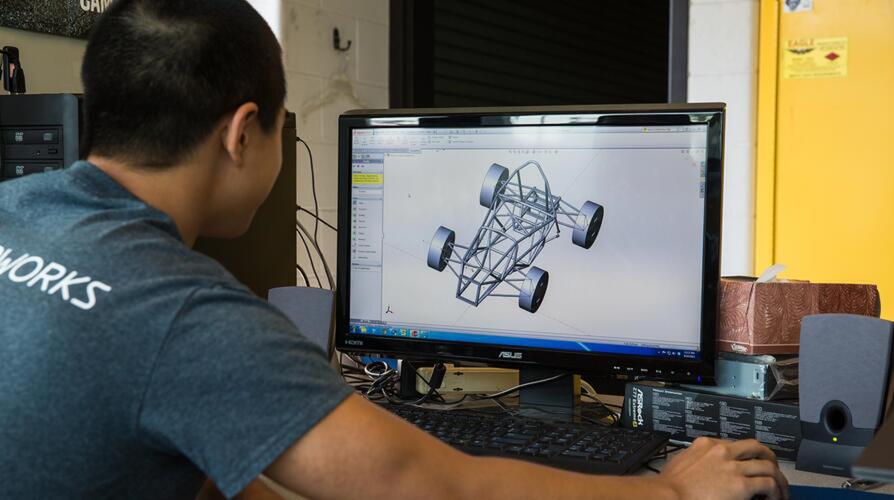How to Pick Your Major
September 1, 2022
Exploring UM-Dearborn’s four colleges and areas of study

One of the first steps in cultivating a list of prospective colleges and universities is to identify the institutions that offer the areas of study you’re most interested in. Whether you’ve had lifelong career goals or you’re still on a path of discovery, follow these steps to help find the majors and minors that best support your interests.
- Identify your passions. Has anyone told you, you’d make a great teacher? Or, perhaps you’ve always had an interest in environmental studies. Take some time to reflect on the subjects you love most. You can draw inspiration from your classroom studies or extracurricular activities that bring you joy. Don’t put too much pressure on yourself to narrow your interests down to one subject—once you begin exploring various fields, you’ll be surprised to learn that the right major and minor can satisfy more than one of your passions.
- Consult your guidance counselor. Once you’ve outlined your passions, do some research of your own to find majors and minors that complement your interests. Then, enlist your guidance counselor to share insight on any areas of study you may have overlooked in your initial search. A teacher, parent, or mentor you trust can also help offer advice. It doesn’t hurt to gather a wealth of information on subjects that align with your interests in these early stages of planning!
- Research schools that offer majors that match your passions. As you subscribe to college newsletters, you’ll notice that most universities ask you to share your major in their sign-up forms. This helps tailor the information you receive to your specific studies of interest. Visit college websites to browse through their major offerings and read up on their descriptions to ensure that you’re selecting the best fit for you. At UM-Dearborn, you can peruse more than 100 majors and minors offered at UM-Dearborn.
- Schedule appointments with admissions counselors. Once you’ve started compiling your list of prospective colleges and universities, consider reaching out to their admissions officers who can help advise on the majors and minors that would best fit your interests and career goals. To learn more specifics about the majors that interest you, some academic college advisors may even be willing to answer any questions you might have. An administrative assistant within each respective college may be able to connect you with the appropriate staff or faculty member if applicable.
- Explore your options. Still undecided? No worries! Most students won’t need to officially declare a major until their junior year to fulfill most major requirements for a four-year degree. It is encouraged to use your first two years to discover the subjects that pique your interest. Actively participate in student-run organizations, join a competitive team, take on an internship, research opportunity, or volunteer project; and keep an eye on the Dearborn Discovery Core courses that you find most interesting.
Related Articles
Why Should You File the FAFSA?
Learn just how affordable it can be to earn your college degree
5 Reasons to Visit a College Campus
You’re invited! Experience the Dearborn difference for yourself
The Dearborn Experience According to a Dearborn Wolverine
Learn more about life at UM-Dearborn from a current student who knows our campus best
Everything You Need to Know About the Go Blue Guarantee
A Student Financial Aid Advisor explains it all
